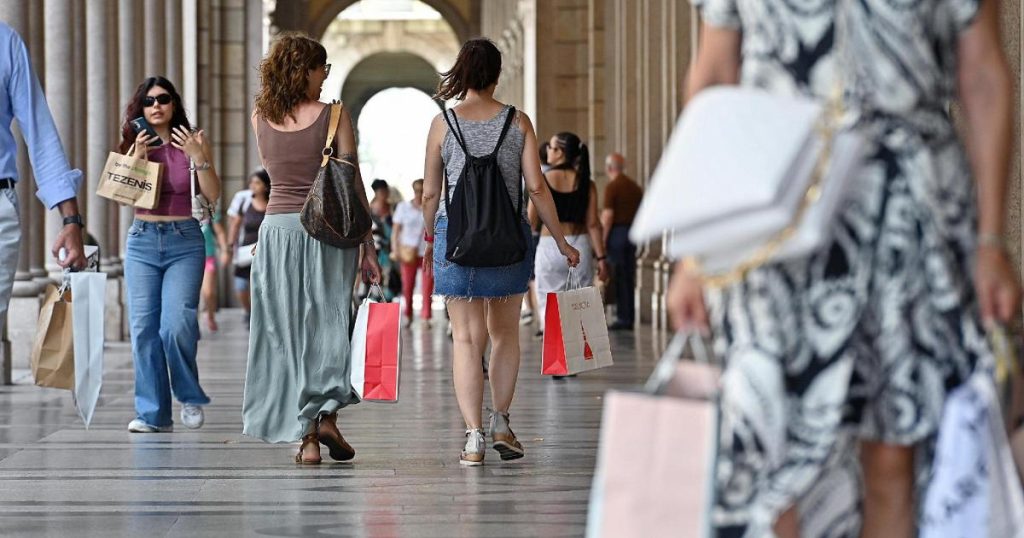In February, retail sales saw a 0.1% increase in value and volume compared to the previous month, according to estimates from Istat. Sales of both food (+0.1% in value and volume) and non-food items (+0.2% in value and volume) slightly increased. During the December 2023 – February 2024 quarter, retail sales increased in value (+0.1%) but decreased in volume (-0.3%). Food sales remained stable in value but decreased in volume (-0.7%), while non-food sales increased in value (+0.2%) but slightly decreased in volume (-0.1%). In February 2024, annual retail sales increased by 2.4% in value and 0.3% in volume. Food sales grew by 3.9% in value and 0.4% in volume, while non-food sales increased by 1.1% in value and 0.5% in volume.
Overall retail sales volume increased slightly in February 2024, marking the first growth since May 2022. Istat noted that the year-on-year growth in value characterized all distribution forms except online sales which saw a slight decline. Among non-food items, there were varied annual changes among product groups. The largest increase was seen in Perfumery and personal care products (+7.7%), while the most significant decline was observed in IT, telecommunications, and telephony equipment (-1.8%). Compared to February 2023, retail sales value increased for large retailers (+4.0%), small businesses (+1.0%), and non-store sales (+1.6%), while e-commerce sales decreased (-0.5%).
Consumer association Codacons commented on the retail sales data, noting that for the first time in two years, sales volume showed growth but emphasized that this is not enough to recover from past declines. Sales increased annually in both value and volume in February, with a 2.3% growth in value and a modest 0.3% increase in volume. The organization highlighted the negative impact of retail price increases on consumer behavior, underscoring the need for price reductions to mitigate the effects of inflation on household budgets. The Codacons stressed the importance of restoring consumer purchasing power by addressing rising energy costs and encouraging price decreases.
The National Consumers Union (UNC) acknowledges the emergence of a consumption recovery, albeit weak, indicating that the true turning point in retail sales remains uncertain. UNC President Massimiliano Dona emphasizes the positive trend of increased sales volumes, particularly in both food and non-food sectors. The organization highlights the significance of the volume growth, highlighting the fact that overall sales volume had not increased since May 2022, with food sales stagnant since December 2021. The UNC views the increase in consumption as a positive development for Italian consumers after years of constrained spending habits.
Looking ahead, observers anticipate the effects of these incremental improvements on consumer behavior and overall economic recovery. While retail sales have shown signs of modest growth in recent months, there remains uncertainty regarding the sustainability of this trend and the broader implications for the Italian economy. Policymakers and businesses will closely monitor consumer spending patterns and retail performance to gauge the pace of recovery and address any lingering challenges in the retail sector. As retail sales continue to fluctuate in response to economic conditions and consumer confidence, the focus will be on fostering a stable and sustainable growth trajectory for the retail industry in Italy.


